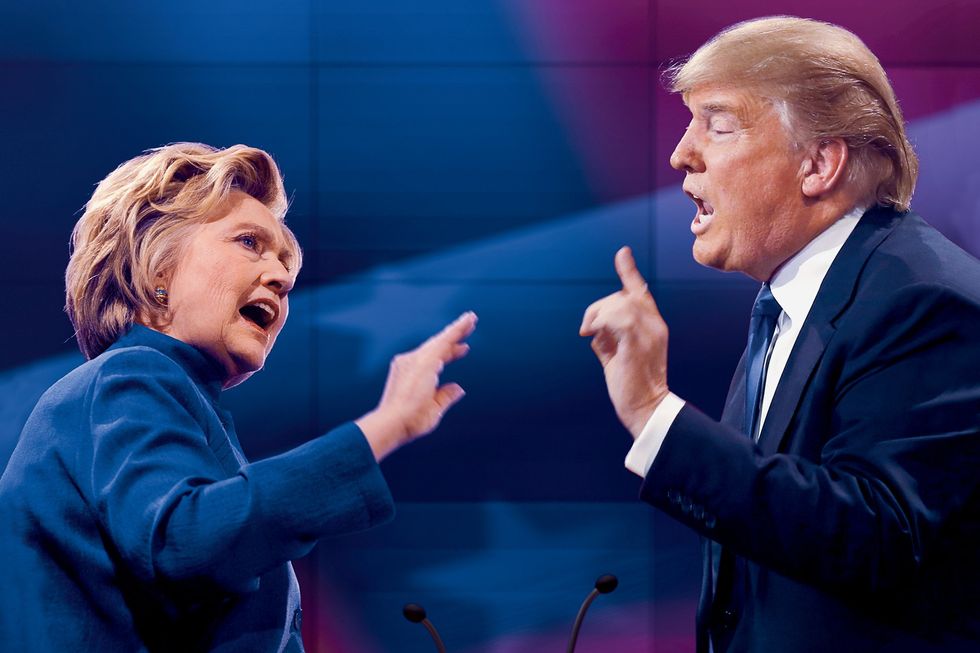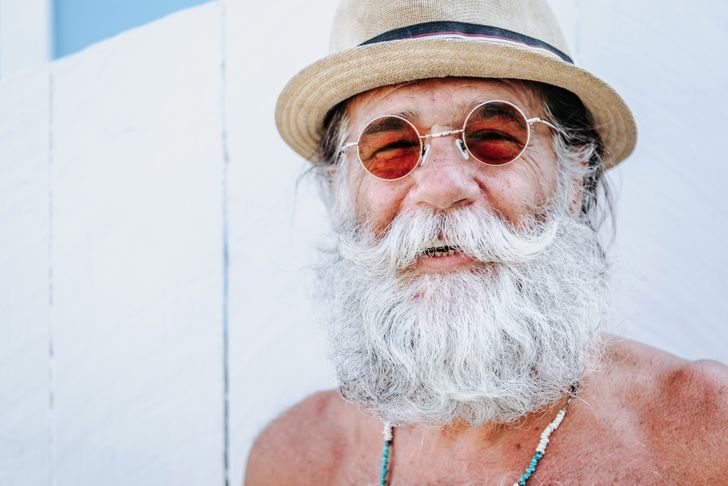During the 2016 Presidential Election, voters found themselves on the receiving end of two very polarizing figures. Hillary Clinton, a former First Lady, Senator and Secretary of State, was the embodiment of political prowess. As an experienced government official, Clinton had come into the race with her reputation preceding her. Known for her involvement in healthcare reform, the Benghazi Incident, and middle-eastern foreign policy, Clinton was more than experienced in the political arena.
Her education? A Juris Doctorate from Yale Law School.
Donald Trump, was a business tycoon, making his fortune by buying and renovating various properties across the world. His infamy resulted in the creation of his own reality television series “The Apprentice” propelling him into an even larger spotlight. Throughout the years Trump became known for his bluntness, a trait that would carry forward into his presidential campaign.
His education? A Bachelors from the University of Pennsylvania.
So why were these candidates viewed so differently and at what point did their education become influential?
The Pew Research Center stated that in the last election
“College graduates backed Clinton by a 9-point margin (52%-43%), while those without a college degree backed Trump 52%-44%. This is by far the widest gap in support among college graduates and non-college graduates in exit polls dating back to 1980”
Those numbers are very telling, showcasing the impact of higher education on each candidate’s persona. Whether it is the voter that is educated or the candidate, there appears to be a noticeable distinction between those who have attended college and those that have not.
For many voters, the titles associated with higher education were not the concern, as Trump’s educational history was never questioned. It instead, comes down to the linguistics of each candidate, something that is generally equivalent to the candidate’s level of education.
When electoral candidates use advanced word choice, they isolate themselves from the “average” American. Because of this, they often times dilute their own vocabulary. During the electoral race, there was a noticeable grammatical contrast between the candidates. On average, Hillary Clinton spoke publically at a high school level, while her competitor, Donald Trump spoke with the grammatical equivalency of a middle schooler.
Despite President Trump’s many grammatical failures, his nationalist fan base, both pre-and post-election, has failed to critique his public speaking.
Trump framed himself as the “people’s president” expressing blunt sentiments that many Americans agreed with. These opinions, many of which were formed without factual support, allowed Trump to connect with his core supporters, uneducated white America. This group, which has failed to accept factual statements in the past, felt as though their views had finally been acknowledged by a presidential candidate.
In addition, the prolonged use of the term “fake news” by Trump and his administration, has furthered the divide between uneducated and educated voters, with the former believing that they can no longer trust the academic community.
As America jumped from president to president uneducated Americans began to appear left out of the conversation. With more and more voters obtaining a college degree this group became isolated and henceforth ignored by traditional political frontrunners. As the Obama administration attempted to maneuver through a complex maze of economic, environmental and foreign policy, uneducated white America felt ignored. This group, which had become unwilling to understand issues outside of the national spotlight, was demanding direct intervention, something that Donald Trump claimed he would provide.
With the victory of Donald Trump, these anti-academic sentiments were validated, fueling the nation’s largest critique of higher education in the 21st century.




 Going to the cinema alone is good for your mental health, says science
Going to the cinema alone is good for your mental health, says science












 women in street dancing
Photo by
women in street dancing
Photo by  man and woman standing in front of louver door
Photo by
man and woman standing in front of louver door
Photo by  man in black t-shirt holding coca cola bottle
Photo by
man in black t-shirt holding coca cola bottle
Photo by  red and white coca cola signage
Photo by
red and white coca cola signage
Photo by  man holding luggage photo
Photo by
man holding luggage photo
Photo by  topless boy in blue denim jeans riding red bicycle during daytime
Photo by
topless boy in blue denim jeans riding red bicycle during daytime
Photo by  trust spelled with wooden letter blocks on a table
Photo by
trust spelled with wooden letter blocks on a table
Photo by  Everyone is Welcome signage
Photo by
Everyone is Welcome signage
Photo by  man with cap and background with red and pink wall l
Photo by
man with cap and background with red and pink wall l
Photo by  difficult roads lead to beautiful destinations desk decor
Photo by
difficult roads lead to beautiful destinations desk decor
Photo by  photography of woman pointing her finger near an man
Photo by
photography of woman pointing her finger near an man
Photo by  closeup photography of woman smiling
Photo by
closeup photography of woman smiling
Photo by  a man doing a trick on a skateboard
Photo by
a man doing a trick on a skateboard
Photo by  two men
two men  running man on bridge
Photo by
running man on bridge
Photo by  orange white and black bag
Photo by
orange white and black bag
Photo by  girl sitting on gray rocks
Photo by
girl sitting on gray rocks
Photo by  assorted-color painted wall with painting materials
Photo by
assorted-color painted wall with painting materials
Photo by  three women sitting on brown wooden bench
Photo by
three women sitting on brown wooden bench
Photo by 
 Photo by
Photo by  Photo by
Photo by  Photo by
Photo by  Photo by
Photo by 


 people sitting on chair in front of computer
people sitting on chair in front of computer



 all stars lol GIF by Lifetime
all stars lol GIF by Lifetime two women talking while looking at laptop computerPhoto by
two women talking while looking at laptop computerPhoto by  shallow focus photography of two boys doing wacky facesPhoto by
shallow focus photography of two boys doing wacky facesPhoto by  happy birthday balloons with happy birthday textPhoto by
happy birthday balloons with happy birthday textPhoto by  itty-bitty living space." | The Genie shows Aladdin how… | Flickr
itty-bitty living space." | The Genie shows Aladdin how… | Flickr shallow focus photography of dog and catPhoto by
shallow focus photography of dog and catPhoto by  yellow Volkswagen van on roadPhoto by
yellow Volkswagen van on roadPhoto by  orange i have a crush on you neon light signagePhoto by
orange i have a crush on you neon light signagePhoto by  5 Tattoos Artist That Will Make You Want A Tattoo
5 Tattoos Artist That Will Make You Want A Tattoo woman biting pencil while sitting on chair in front of computer during daytimePhoto by
woman biting pencil while sitting on chair in front of computer during daytimePhoto by  a scrabbled wooden block spelling the word prizePhoto by
a scrabbled wooden block spelling the word prizePhoto by 








